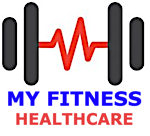It’s important to have healthy habits throughout all stages of your life. Here are some ways you can incorporate healthy changes that can assist with your mental and physical health, in the long run.
12WBT Tips For Every Age Group
Alright, so let’s start with the 20s! While youth is on your side and you may feel invincible, learning how to cook nutritious meals, based on whole-foods, is going to serve you well in this decade and long into the future! Excess caffeine consumption can lead to vitamin B deficiencies, so it’s always a good idea to consume in moderation and always reach for your water bottle first!
In your 30s, fertility may be something to consider for some women. Iron is important here – red meat, poultry, fortified breads, cereals and green leafy vegetables. Folate consumption from dark leafy greens and whole-grains is important, while zinc consumption from meat, poultry and seafood is important for men.
Going into your 40s and 50s, women have a shift in hormones – thank you menopause! We also change the way we lay down body fat. A Mediterranean diet during this phase of life is heart healthy, gut-healthy and balanced – it will also reduce the risk of heart disease, obesity and diabetes.
Your 60s are all about muscle preservation! Increased calcium and protein are essential if you’re looking to minimise muscle wastage, also known as sarcopenia. This condition is very common as we age and can have a great impact on your life. As well as eating more protein, fruits and vegetables, it’s recommended to do some sort of resistance or strength training if you can.
Moving on to the 70s age bracket, many adults here notice a decrease in appetite. With a lower volume of food being eaten, it’s more important that meals are nutrient dense to support health and energy levels.
Tips for majority of age groups
All adults should aim for 5 serves of vegetables and 2 serves of fruit each day. Try adding some fruit to your breakfast oats and lunchtime salads, add in veggie sticks and dips for snacks, or even make a veggie packed bolognese for dinner! There are so many ways to get your fruit to veg in throughout the day.
Consuming adequate calcium for bone health is really important, especially for women. As bone density starts to decrease from around age 35, calcium will help build and maintain those bones. Sources of calcium include yoghurt, milk, cheese, and fortified dairy alternatives.
Omega 3 is a must as it assists with brain, heart and eye health! Later in life, it can also assist with inflammation and joint pain. Oily fish is a great source of omega 3, so try to eat it weekly.

